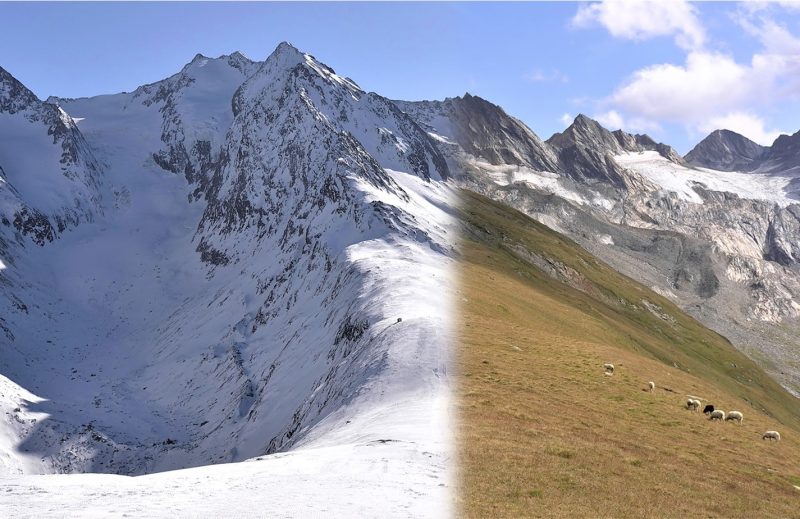
A new study suggests that spring snowmelt in the Alps is occurring earlier in the year, and that change – caused by ongoing climate change – threatens the lifecycle of vitally important microbial communities within alpine soils. The below-ground microbes critically support above-ground life because they recycle the key nutrients that all animals and plants depend upon. They also control how much carbon is stored in the soil, where it cannot cause further global warming. The findings, by scientists from the University of Manchester, were published February 22, 2021, in the peer-reviewed ISME Journal.
In winter, alpine soil microbes depend on snow to act as an insulating blanket, allowing them to continue to work throughout the cold alpine winter. However, it is estimated that the annual Alpine winter snowpack will begin melting over 100 days sooner than currently by the end of this century.
Scientists want to know how soil microbes respond to climate change and how this influences biogeochemical cycles. This is especially pertinent in Alpine regions, said the researchers, where climate change is happening at double the rate of the global average. Arthur Broadbent from University of Manchester is the study’s lead author. He said in a statement:
Using a high-alpine experiment in the Austrian Alps, we discovered that spring snowmelt triggers an abrupt seasonal transition in soil microbial communities, which is closely linked to rapid shifts in carbon and nitrogen cycling.
Snowmelt is predicted to occur 50-130 days earlier in alpine regions due to climate change by the end of the century. Using experimental manipulations, we demonstrated that earlier snowmelt, of even just 10 days, leads to an earlier seasonal transition in microbial communities and biogeochemical cycling.
As a consequence, winter ecosystem functioning will be reduced in seasonally snow-covered ecosystems under future climate change, which threatens carbon retention and plant productivity. This would negatively affect agricultural production and disrupt natural ecosystems. It will also alter annual carbon fluxes in these ecosystems with the potential to cause further climate warming.
Bottom line: Spring snowmelt in the Alps is occurring earlier in the year, says new research, and the earlier warming – due to climate change – threatens the lifecycle of vitally important microbial communities in alpine soils.











